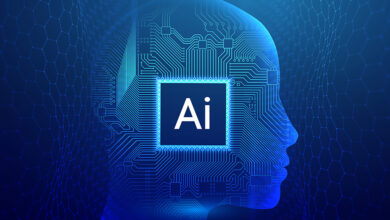Understanding and Addressing AI Risks: Exploring Ethical Implications
Explore the negative impacts of AI technology and find ways to address ethical challenges for a responsible and accountable AI future.
Explore the negative impacts of AI technology and find ways to address ethical challenges for a responsible and accountable AI future.

Artificial Intelligence (AI) is revolutionizing various aspects of our lives, but it also comes with its own set of risks and ethical implications. In this blog post, we will delve into the potential dangers of AI technology and discuss ways to address and mitigate these risks for a responsible and accountable AI future.
1. Unintended Consequences of AI
AI systems, if not properly designed and implemented, can lead to unintended consequences. Three major risks include:
a. Bias and discrimination: AI algorithms can inherit and perpetuate biases present in training data, resulting in unfair and discriminatory outcomes.
b. Job displacement: The automation potential of AI technology raises concerns about job losses across various industries, leading to socio-economic challenges.
c. Autonomous weapons: The development of AI-powered weapons raises ethical concerns about the potential for autonomous decision-making in warfare and its consequences.
To mitigate these risks, organizations and developers should:
– Implement robust and diverse training datasets to minimize bias and discrimination.
– Encourage re-skilling and upskilling programs to address potential job displacement.
– Advocate for regulations and international agreements to prevent the unethical use of autonomous weapons.
2. Lack of Transparency and Accountability
AI systems often lack transparency and accountability, posing significant challenges. Key concerns include:
a. Black box algorithms: Complex AI models often operate as black boxes, making it difficult to understand their decision-making process.
b. Algorithmic bias: Biased algorithms can perpetuate discrimination, impacting areas such as hiring practices and criminal justice systems.
c. Responsibility and liability: Determining accountability when AI systems cause harm or make faulty decisions is a legal and ethical challenge.
To tackle these issues, stakeholders should:
– Encourage
explainable AI techniques to enhance transparency and understandability.
– Implement robust testing and evaluation frameworks to identify and address algorithmic biases.
– Establish clear guidelines and regulations for responsibility and liability in AI development and deployment.
3. Privacy and Data Security
AI relies heavily on data, which introduces risks to privacy and data security. Concerns include:
a. Data breaches: The improper handling of sensitive data used by AI systems can result in breaches, leading to privacy violations and potential harm.
b. Surveillance and loss of privacy: Widespread deployment of AI-powered surveillance systems raises concerns about the erosion of personal privacy.
c. Unauthorized data usage: AI systems must ensure that data is used only for intended purposes and prevent unauthorized access and usage.
To safeguard privacy and data security, organizations should:
– Implement robust data protection measures, including encryption and access controls.
– Conduct privacy impact assessments to evaluate risks and mitigate them proactively.
– Adhere to privacy regulations and ensure data is handled ethically and responsibly.
4. Ethical Considerations
AI poses ethical challenges that require careful consideration. Key aspects include:
a. AI and human decision-making: Balancing the roles and responsibilities of AI and human decision-makers is crucial to prevent undue reliance or abdication of human judgment.
b. Unintentional reinforcement of stereotypes: Biased training data can perpetuate and reinforce harmful stereotypes, leading to unfair and discriminatory outcomes.
c. Informed consent and privacy: Users should have control over their data and understand how it is used, ensuring informed consent and protection of privacy.
To address ethical concerns, organizations should:
– Establish ethical frameworks and guidelines for AI development and deployment.
– Implement rigorous testing and validation processes to identify and mitigate biases.
– Enhance transparency and communication with users to ensure informed consent and privacy protection.
Conclusion
By understanding and actively addressing these AI risks and ethical challenges, we can harness the power of artificial intelligence responsibly, promoting a future that prioritizes human well-being and societal values.





